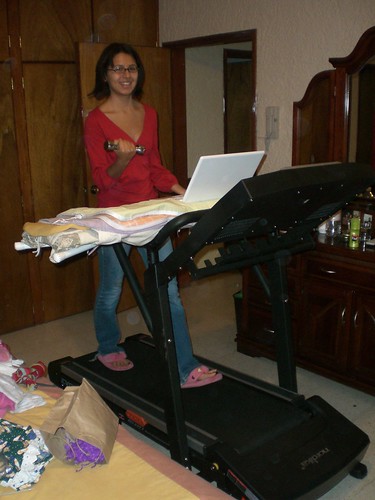
Sleeping is something we have all done since the day we were born. It's what rejuvenates us and prepares our bodies for the day to come. For many people around the globe, sleep isn't something that comes easy. Today we are going to discuss the benefits of sleep and ways you can get the sleep your body requires.
The Benefits of Getting Proper Sleep

There are quite a few benefits that sleep offers our bodies. From improved memory to better productivity, we cover some of the surprising benefits of sleep.
A Better Memory
Getting a good amount of sleep every night has many upsides. Getting a full night rest can greatly improve your memory. This means more effectively getting that essay you've been working on done and staying on task during the day. While we sleep, our minds are extremely busy. We are subconsciously going through the tasks of the day, and our brains are reorganizing all of the information that has been put in. Those who sleep well during times that they are trying to learn a new task do so much quicker than those who do not get enough shut eye.
Quality and Length of Life
Those who get good sleep on a consistent basis are known to live longer lives. During rest is when our bodies are able to heal and slow down. Not sleeping enough puts additional strain on our bodily organs. Those who sleep well, wake up feeling more rested and live much happier lives overall. These people are able to tackle tough situations much better and do not experience frustration as often as those who do not get enough sleep. A body is much more functional when it is allowed to rest and regroup.
People who get the sleep their bodies require are also much less stressed overall compared to those who do not get enough shut eye. This means more consistent blood pressure and overall cardiovascular health. If you've ever experienced intense stress for even a short period of time, you have probably felt how overwhelming it is on your body. You can become overly tired, have trouble thinking, have a racing heart, along with many other symptoms that are harmful over the long-term.
Boost Your Imagination and Productivity
Ever noticed that when you get a great night's sleep, you wake up and are much more creative and able to get daily tasks done? This is why so many people choose to take a nap when they are having a rough day and looking for a restart. Sleeping is a lot like restarting your computer when it's been freezing. Sometimes we need a break so that we can come back with an empty plate and start from the beginning. Sleep improves performance in every aspect of the word: whether you are taking on a new project at work, trying to write a paper, creating a painting or playing a sport.
When you sleep a good amount, it is much easier for you to get necessary tasks completed. Those who do not sleep enough often struggle to keep their attention on the task at hand and become distracted very easily.
Sleep Helps You Lose Weight
Recent studies have shown that individuals who are losing weight do so more effectively when they are well-rested. People who do not get enough sleep are generally hungry more often than those who are getting enough rest and this can make it difficult to shed pounds. The reason for this is because the area in your brain that controls sleep also controls your metabolism.
How Much Sleep Is Needed
It is difficult to say how much sleep a person requires because everyone is different but in general about 7 to 9 hours a night is adequate. The best way to find out how much sleep you require is to set a sleeping schedule for yourself. Start by choosing a bedtime and make this bedtime a concrete time that you hit the hay no matter what. Set your alarm for 8 hours from that time and see how you feel after a week of waking up at that time each day. Move the time you wake up an hour forward or backward based on what you feel as a way to pinpoint the perfect amount of sleep your body needs.
If you find yourself feeling tired during the day, take a look at other aspects of your life as well such as how much exercise you are getting and what types of foods you are eating. Eating right, exercising and sleeping properly can completely change your life; giving you much more energy as a whole.
Tips To Fall Asleep Faster and Stay Asleep Longer

Your Sleep-Haven
The atmosphere in which you sleep is very important. Having a room that is too hot or too cold can make it very difficult to fall asleep or may cause you to wake up during the night. Most people find that a temperature of about 70 degrees is perfect. Make sure your room is dark and quiet so you will not be woken up. Your room should be your personal safe haven and not associated with stress. This means, no taking business calls in your room or if you work from home, find another place to store your computer.
Foods That Help You Sleep

Do you find yourself becoming hungry right before bed? While you've probably heard that eating a large meal before sleep is no good – it can interrupt your sleep and cause weight gain if done on a regular basis – there are actually foods that can help you get to sleep. Reach for fruits and veggies and if you need a little more substance to keep your stomach happy until morning, you may want to consider cottage cheese or a slice of toast.
Sleep Mistakes Many People Make
Sleeping Too Much

Many people recognize that not sleeping enough has negative effects on the body, but so does sleeping too much. When your body is at rest for long periods of time, your blood isn't flowing as effectively and everything is slowed down. Our bodies thrive when they are pushed, exercised and exposed to situations that keep them working. Too much time being inactive can lead to problems such as depression, anxiety, heart attack, blood clots, diabetes, obesity and much more.
Waiting Too Long for Sleep to Come

If you find yourself having a hard time falling to sleep, it is best to get up and move around. Oftentimes, the reason you are unable to fall asleep is because you did not give your body time to calm down. People who have nightly rituals fall asleep faster and stay asleep longer, so this may be something you want to incorporate into your evenings. This can include reading a book, watching a happy movie (avoiding violence and scary shows before bed is important), or playing a board game can suffice. Try out a few different things until you find something that works for you.
Having Caffeine or Sugar Before Bed


One of the worst things you can do before bedtime is eat or drink something that contains large amounts of sugar or caffeine. While you may want to go to sleep, your body is going to be amped up and active. Try not to have these types of things within a few hours of winding down, or you may not be able to fall asleep.
Exercising Before Bed

Taking part in any task that is going to raise your body temperature right before bed is going to make sleeping that much tougher. Not only is exercising something that you should consider doing earlier in the day but the same goes for taking a warm bath or shower. In order to get to sleep and stay asleep, our bodies must cool and having a higher body temperature means it will take longer for rest to come your way. We advise bathing earlier in the day and trading that night exercise for some light stretching or yoga to help calm your body.
Having Technology in Bed with You

While sending out one last Tweet or answering that text message may seem harmless enough, it can actually negatively affect your sleep. Even something as simple as hearing your phone vibrate or 'beep' can interrupt your sleep easily because we are so trained to answer such things right away. Take care of those technology-related tasks before you lie down and you will find it much easier to get to sleep and truly start winding down.
Loss of Sleep Cannot Be Made Up For

While it is okay to limit your sleep when you are trying to rush to finish a project, it isn't something that should be done on a regular basis. Remember, sleep cannot be made up for. You cannot sleep horribly during the week and then try to cram in additional hours of sleep on the weekends. Sleep lost is sleep lost, plain and simple and over the long-term, can lead to many health-related problems such as heart disease or depression.
The above guest post is written by health blogger, James Ben. He recommends Mesothelioma and asbestos resources to get the best mesothelioma lawyers in the country.













